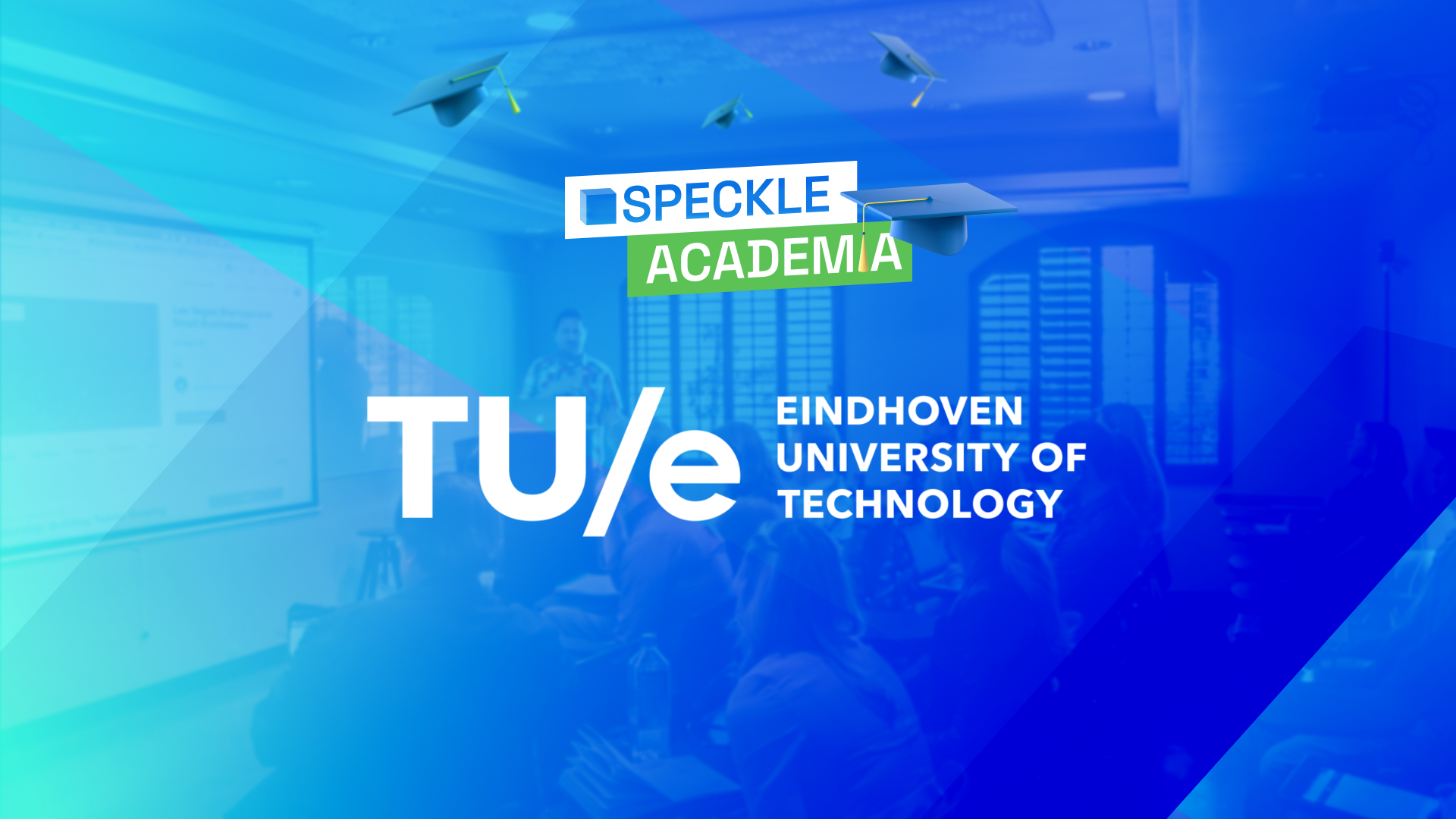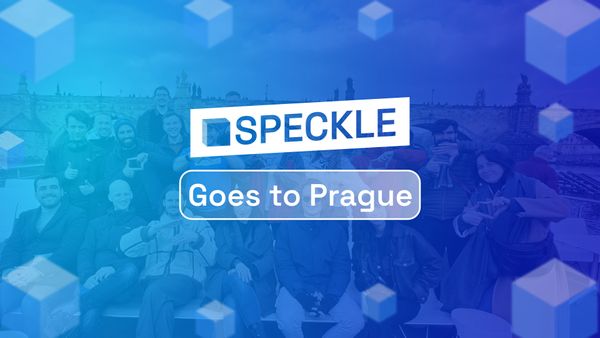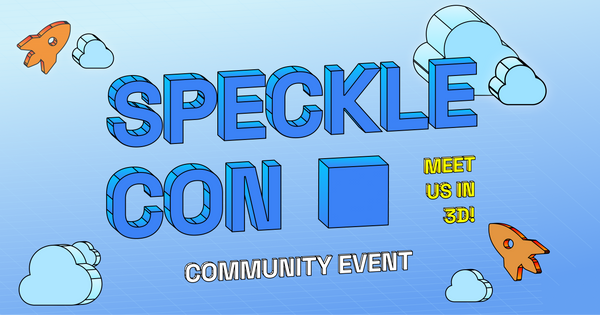::: tip
This story is part of Speckle's Academia programme, an exclusive programme tailored for professors and students shaping the future of AEC!
:::
The Eindhoven University of Technology (TUe) is a leading technical university in the Netherlands, known for its strong focus on engineering and technology.
To modernise the learning experience and improve collaboration among students in the Architecture, Engineering, and Construction (AEC) fields, TUe explored various digital tools at their Faculty of the Built Environment.
Speckle emerged as a powerful solution for data exchange and real-time collaboration.
Understanding the Value of Speckle
The journey with Speckle began with recognising its potential to address the limitations of traditional data exchange formats like IFC (Industry Foundation Classes), which, while useful, often restricted collaboration to single file exchanges.
The live interaction capabilities and effortless collaboration in tools such as Revit made Speckle an attractive option.
Speckle's ability to promote direct collaboration and interaction in real-time was particularly compelling for TUe, especially during the modeling and collaboration phases of projects.
“When I finally had a chance to have students collaborating on these parametric design projects in Rhino Grasshopper, I obviously encouraged them to use Speckle”. - Pieter Pauwels
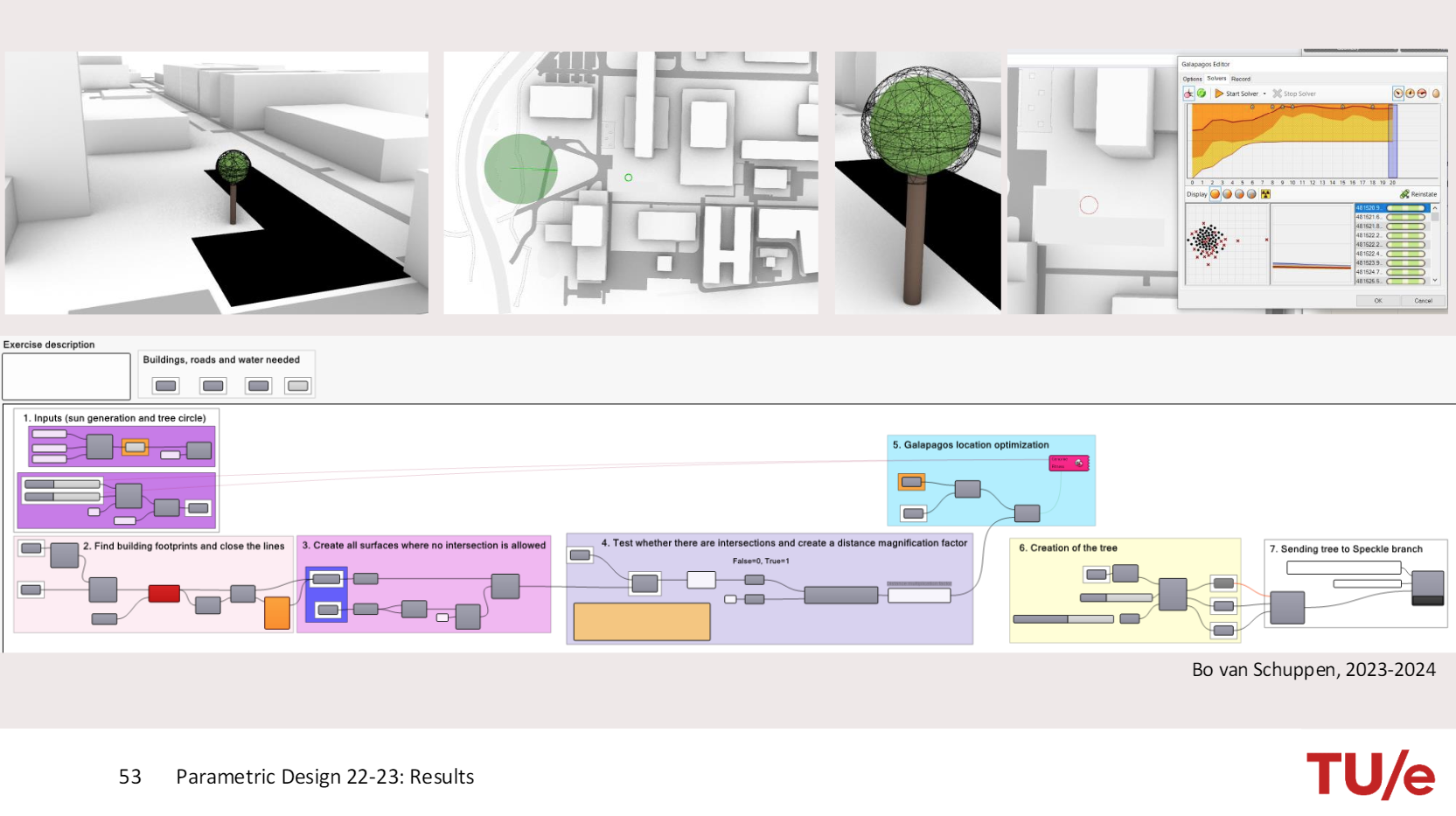
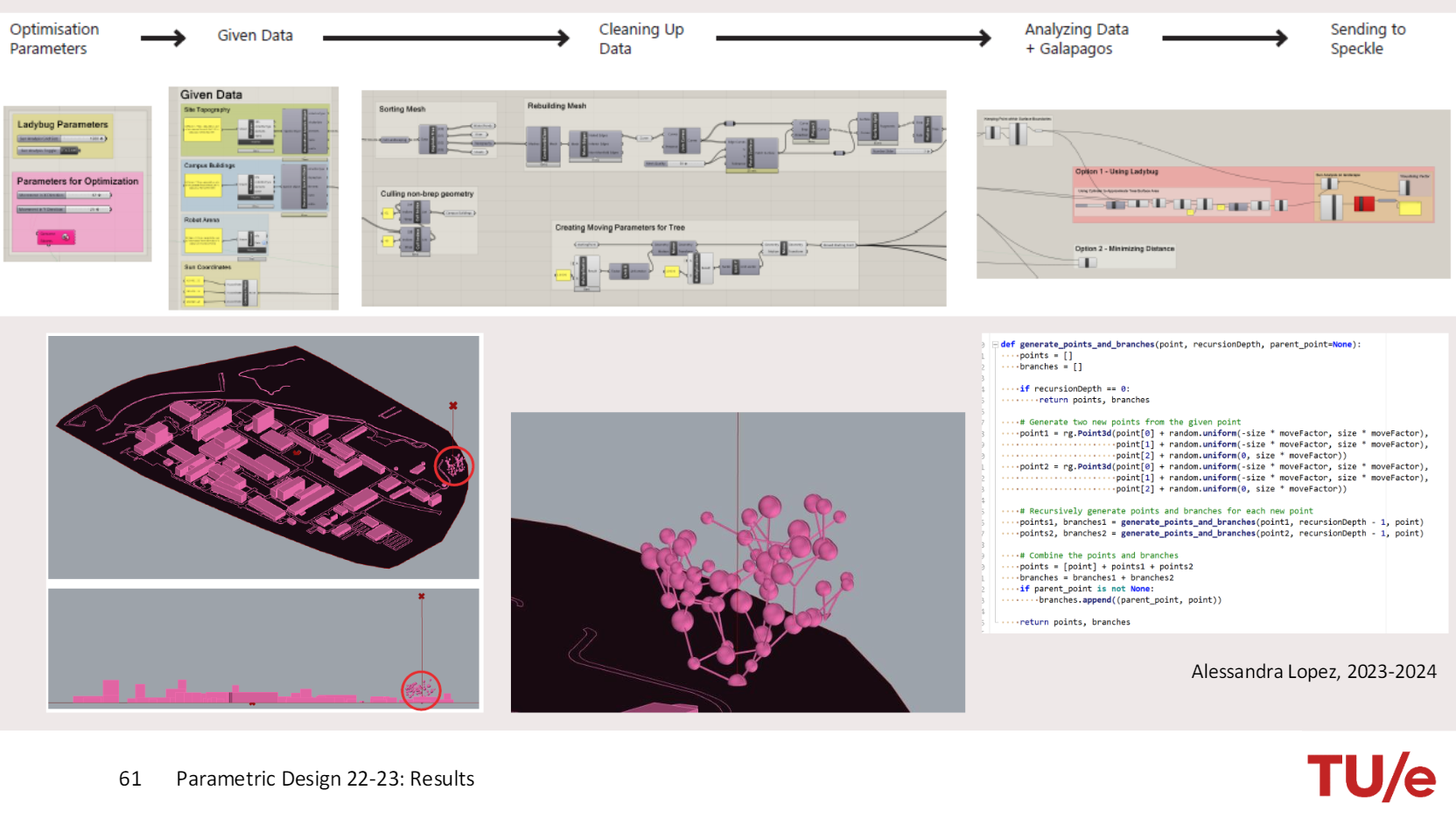
Implementing Speckle in Academic Courses
At TUe, Speckle was integrated into a Master’s course called "Parametric Design" using Grasshopper.
The course, led by Peter Pauwels, involves approximately 50 students and was structured around collaborative assignments, where groups of three students worked together on design briefs over an eight-week period.
“I challenged students by including Speckle and pushing their boundaries in non-file-based direct collaboration,” says Pieter.
Speckle was introduced as a tool to streamline student communication and data sharing to enhance the collaborative experience.
While the adoption process faced some resistance, the integration of Speckle provided a modern alternative to traditional methods like Excel, PDFs, shared folders, and emails.
Benefits Realised with Speckle
Several features of Speckle stood out, making it the preferred choice over other tools:
- Real-time Collaboration: Enabled live interactions and collaboration directly within Grasshopper and Rhino, enhancing the teamwork experience.
- Modern Data Exchange: Replaced traditional methods with a more dynamic and interactive data-sharing approach.
- Industry Relevance: Equipped students with knowledge of futuristic and modern tools, better preparing them for the job market.
- Easy data sharing: Like a project site, data can easily be shared among all students to have a common baseline that can still be updated later.
The implementation of Speckle allowed students to work on assignments such as modeling several different trees for the TUe Campus collaboratively, using ChatGPT and Python / C# coding, sharing progress and feedback seamlessly through Speckle's platform. This facilitated a more interactive and engaging learning environment.
“Speckle is one of the more modern tools for collaboration and sharing. For me, this is one of the obvious parts of the future.” - Pieter Pauwels
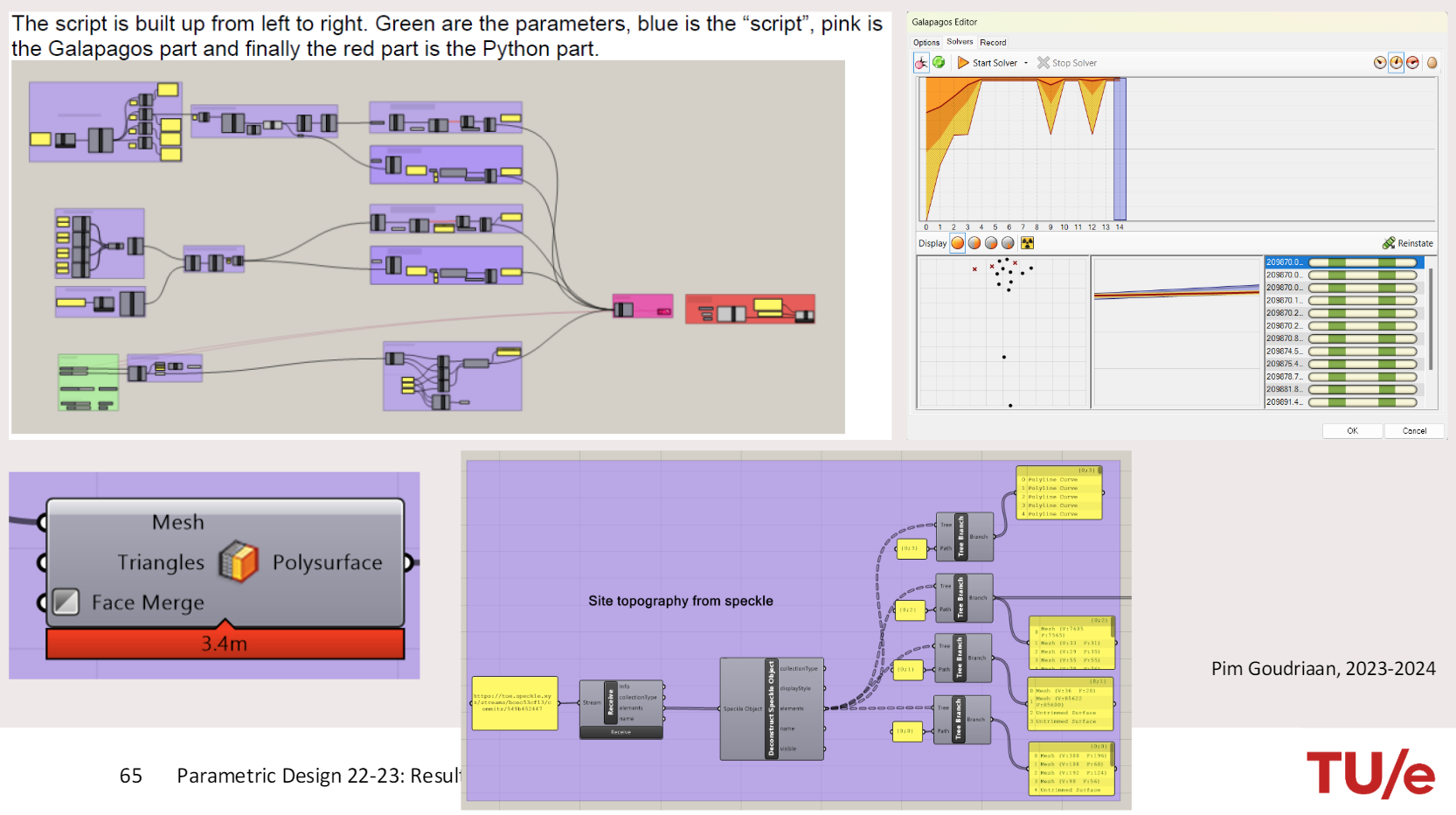
Speckle: Challenges and Adoption by Students
Introducing Speckle to the cohort was not without its challenges. Some students, particularly those less familiar with tools like Grasshopper, found the transition difficult.
Issues such as data privacy and the complexity of managing multiple URLs also posed challenges. However, continuous communication, feature introductions, and support from the Speckle team helped solve these issues. This allowed Pieter and his students to support our team of developers in updating the software, making it more user-friendly and better responding to users’ needs.
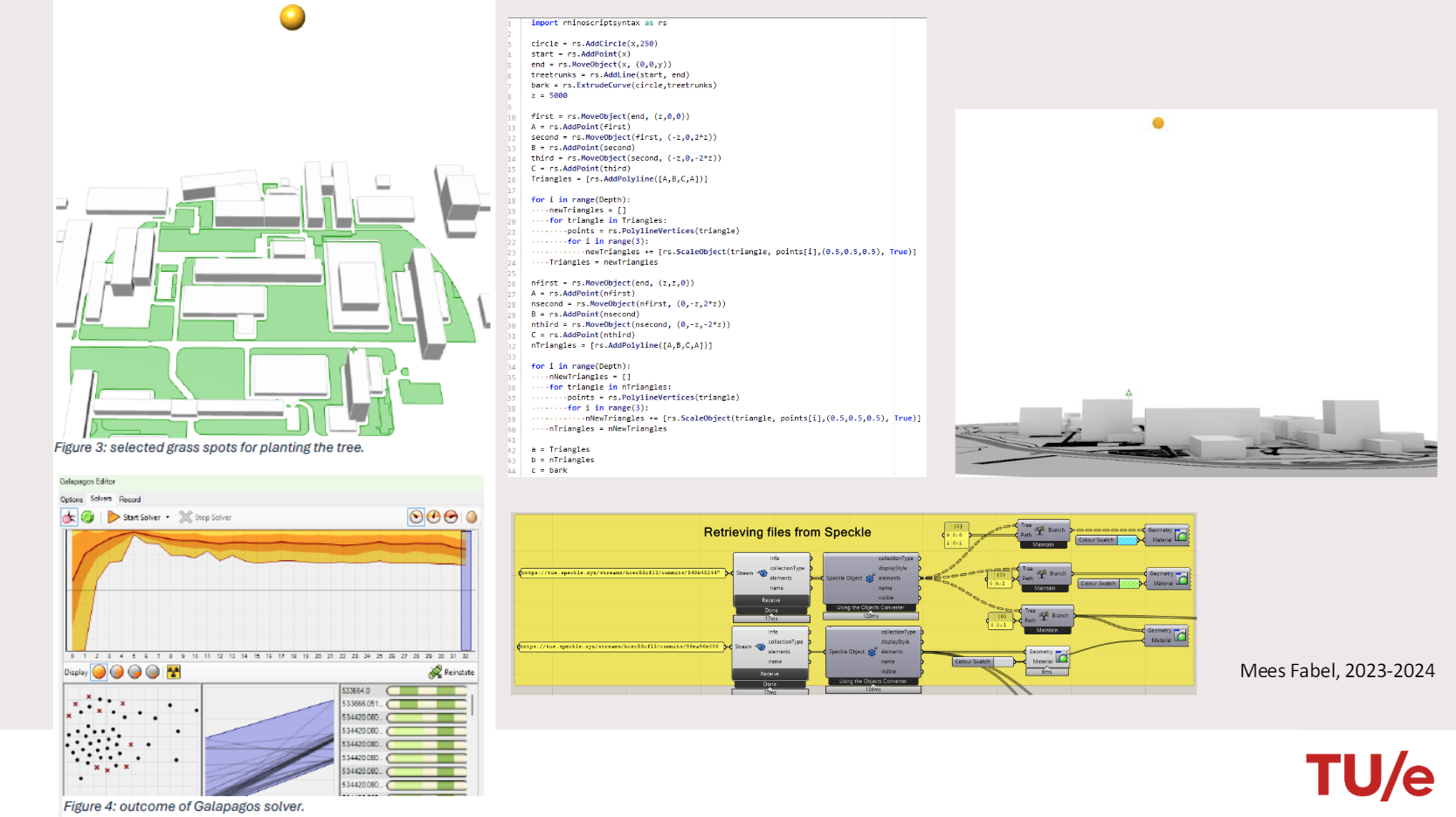
Future Plans and Enhancements using Speckle
TUe plans to continue leveraging Speckle in its academic programmes. Future steps include:
- Enhanced Communication: Strengthening communication with the Speckle team to keep the students and faculty updated on new features and improvements.
- Workshops and Tutorials: Additional tutorials and workshops are offered to help students become proficient with Speckle.
- Integration in Curriculum: Embedding Speckle deeper into the curriculum to ensure that all students gain hands-on experience with the tool.
Conclusion
The integration of Speckle at TUe has marked a significant step towards modernizing academic collaboration in the AEC field.
By facilitating real-time data exchange and enhancing collaborative capabilities, Speckle has not only improved the learning experience for students but also prepared them for the future demands of the industry.
The continuous support and development from the Speckle team promise even greater adoption and success in the coming years.
If you and your team are looking to adopt Speckle's Academia programme, let's discuss:

